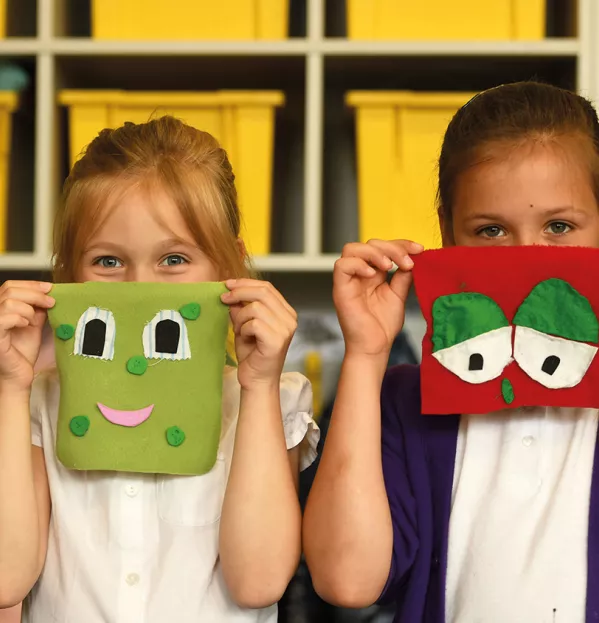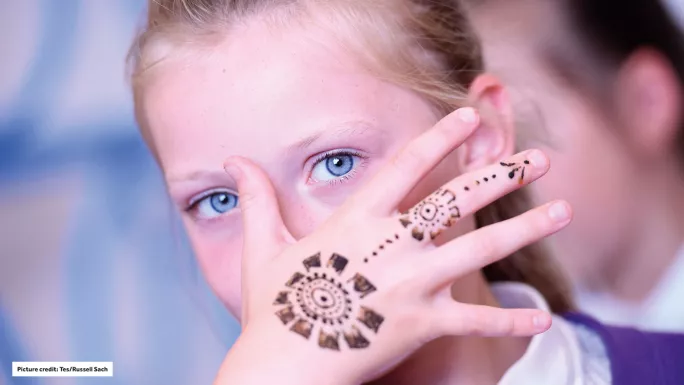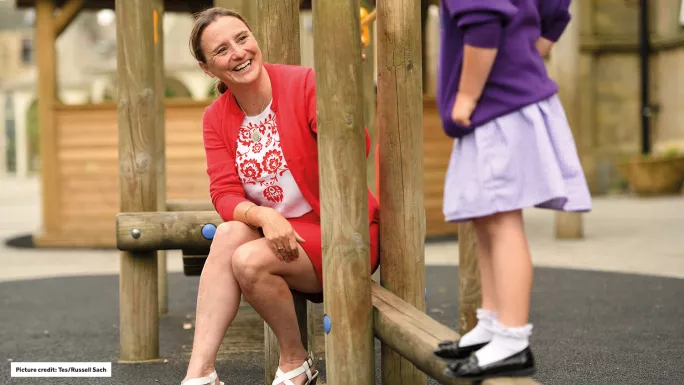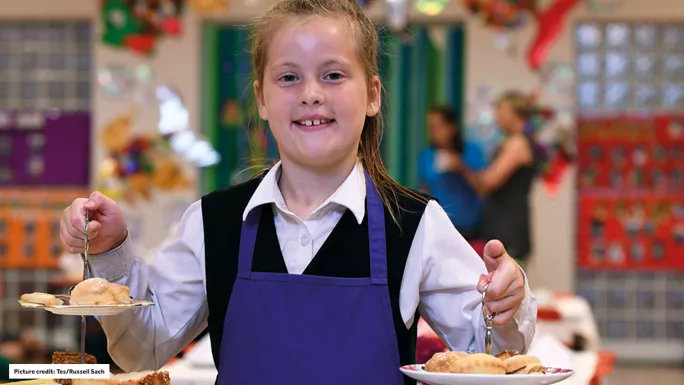‘Teachers at other schools think we’re bonkers’

It’s one of the busiest days of the year at Morecambe Bay Community Primary School, and there’s hardly a worksheet in sight.
Instead, all around the halls of the £5 million-refurbished school you’re confronted by children in the role of newspaper sellers hawking the school paper, market traders selling fresh produce, uniformed waiters, haberdashers, bankers, architects, beauticians, bakers and pizza makers - to name just a few.
That’s because it’s the World of Work week at Morecambe Bay, the winner of the creative school of the year prize at this year’s Tes Schools Awards. This is one of several themed topic weeks involving the whole school. They’re aimed at inspiring children and broadening their horizons, while seamlessly incorporating literacy, numeracy and national curriculum topics.

Siobhan Collingwood, the headteacher, says that when she took over the school in Morecambe, Lancashire, 13 years ago, there was a “silent pact” whereby many pupils were allowed to coast by without being challenged as long as they kept their heads down. “There were a lot of disengaged kids sitting quietly at the back of the classroom,” she says.
Space: the final frontier
Now she’s surrounded by children jostling for her attention and wanting to show off what they’ve learned. “If we did ‘death by worksheet’, we wouldn’t get anywhere,” she says.
Other themed weeks have focused on fitness, seasonal events such as Christmas and Easter, entrepreneurship and science. Last year, the school sent a toy dog named Sam into space using a high-altitude balloon, filming his adventure with a GoPro camera.
When Sam disappeared on re-entry, the school used its creativity to turn disappointment into a new adventure, launching #findsam on social media.
It got the school worldwide news coverage and an invitation to the European Space Agency. Next year they plan to launch Sam’s sister, Samantha, on a rocket.
For the World of Work, students begin by taking tests that suggest some careers they might be suited for. Then they apply for the jobs they’re interested in and get interviewed by the teacher or TA in charge. Because it takes place every year at the end of term, they have the chance to try several of the 20 or so jobs in their school career.
At the bakery, pupils have been weighing, measuring and timing, creating brownies, jam-filled biscuits and more.

“You’re doing percentages, you’re doing fractions. There’s very little in terms of English and maths that can’t be worked into this. You’ve just got to be a bit creative about it,” says Collingwood. Literacy was brought into the task through designing marketing and posters for the children’s stall, as well as writing thank-you letters to the restaurant and ice-cream parlour they visited for research.
Staff say that it’s hard work to teach like this, although planning collectively helps to lighten the load. “Other teachers think we’re bonkers,” says Year 3 teacher Kate Woods.
But the effort is worth it, she says, explaining how a journey to London or a bike-riding trip can show children new options in life. “These are their childhood opportunities, at the end of the day. If we shut them down and say we’re only doing literacy and numeracy, the children aren’t getting any inspiration from anywhere,” Woods says.
Matt Davenport, a Year 5 teacher who is the newest member of staff, adds that teachers need to be enormously adaptable. “It’s not just about having a plan B, it’s all the way through the alphabet for the different options you could have,” he says.
Gaining parents’ trust
When everything is set up at 2pm, parents begin to arrive to see what their children have learned and to get the hard sell from young stallholders. “When we first used to run parents’ events, we would get five or six parents who attended,” Collingwood says. “Now we get about 300. It’s building those relationships of trust that allow you to have some challenging conversations when you need to.”
Food helps to bring in parents who otherwise might be reluctant to enter a school after their own bad experiences. It’s one area where the school’s commitment to creativity addresses a background of deprivation.
“The last two or three years, we gave out more food bank vouchers than we ever have done,” says Collingwood. “We’ve had two parents faint from lack of food because they’re feeding the children instead.” So when the school was refurbished five years ago, they designed kitchens where the students could learn to cook. Thanks to adjustable tables, several parents have learned to cook from scratch and even got catering qualifications.

By engaging with the parents in these creative ways, the school believes it can boost achievement, too. “If you can make it about the community as well, you can build links with the family and that will have a positive impact on how the children achieve,” says Collingwood. “If we can repair these relationships or make them better then the children will perform better in school.”
But she acknowledges that there’s also a pressure to get results. While creative ideas improve students’ performance, only continued progress in results guarantees their freedom to be creative.
“It’s a matter of survival for us,” says Collingwood. “I couldn’t bear it if we dipped in inspection and we suddenly got a team coming in and telling us, ‘You’ve got to have regular target-setting meetings with children - you have to hit these targets,’ and suddenly it became an exam factory.
“I want them to go out there with a fighting chance and to be able to compete with the middle-class kids who’ve had fantastic, rich life experiences before they get to high school. I want them to be on a reasonably level playing field.”
You need a Tes subscription to read this article
Subscribe now to read this article and get other subscriber-only content:
- Unlimited access to all Tes magazine content
- Exclusive subscriber-only stories
- Award-winning email newsletters
Already a subscriber? Log in
You need a subscription to read this article
Subscribe now to read this article and get other subscriber-only content, including:
- Unlimited access to all Tes magazine content
- Exclusive subscriber-only stories
- Award-winning email newsletters